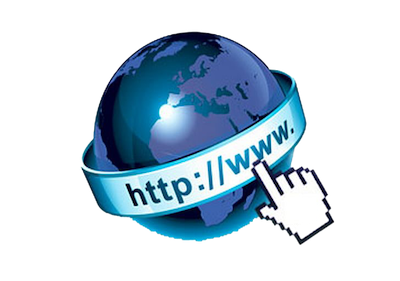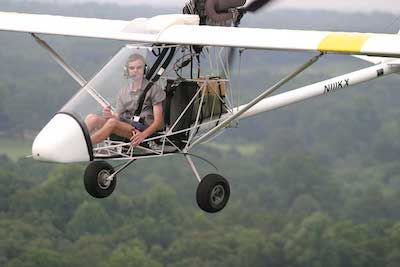Wow! Another year has come and gone! Where did the time go?
It seems like only yesterday that I decided to start writing a genealogy newsletter for a few of my friends and acquaintances. Well, it wasn’t yesterday… it was exactly 27 years ago!
Never in my wildest dreams did I imagine that 27 years would be so interesting, so much fun, and so rewarding.
 Twenty-seven years has slipped by in almost the blink of an eye. It seems like only yesterday that I sent the first e-mail newsletter to about 100 people, mostly members of CompuServe’s Genealogy Forums. (Do you remember CompuServe?) The last time I looked, this newsletter now has tens of thousands of readers tuning in every day! If you would have told me that 27 years ago, I would have never believed you.
Twenty-seven years has slipped by in almost the blink of an eye. It seems like only yesterday that I sent the first e-mail newsletter to about 100 people, mostly members of CompuServe’s Genealogy Forums. (Do you remember CompuServe?) The last time I looked, this newsletter now has tens of thousands of readers tuning in every day! If you would have told me that 27 years ago, I would have never believed you.
This little newsletter started as a way for me to help friends to learn about new developments in genealogy, to learn about conferences and seminars, and to learn about new technologies that were useful to genealogists. I especially focused on what was then the newly-invented thing called the World Wide Web. In 1996 many people had never heard of the World Wide Web, and most people didn’t understand it.
None of the first recipients knew in advance that the newsletter would arrive; I simply e-mailed it to people who I thought might be interested. In 1996 nobody objected to receiving unsolicited bulk mail; the phrase “spam mail” had not yet been invented. I shudder to think if I did the same thing in today’s internet environment.
The word “blog” also had not yet been invented in 1996, so I simply called it an “electronic newsletter.” Some things never change; I still refer to it as an “electronic newsletter” although obviously it is a blog.
Here is a quote from that first newsletter published on January 15, 1996:
“Well, it’s started. This newsletter is something that I have been considering for a long time, but I finally decided to “take the plunge.” I’ve subscribed to several other electronic newsletters for some time now and have found them to be valuable. On many occasions I have said to myself, “Someone ought to do a weekly newsletter for genealogy news.” One day the light bulb went on, and I decided that perhaps I was that someone.
“I hope to collect various bits of information that cross my desk and appear on my screen every week. Some of these items may be considered ‘news items’ concerning events and happenings of interest to computer-owning genealogists. Some other items will be mini press releases about new genealogy software or other products and services that have just become available. I may write a few articles about things that are not genealogy-related but still seem to be of interest to me and probably to the readers. This may include articles about online systems, operating systems or other things that affect many of us.
“You will also find editorials and my personal opinions weaving in and out of this newsletter. Hopefully I will be able to clearly identify the information that is a personal opinion.
“The expected audience of this newsletter includes anyone in the genealogy business, any genealogy society officers and anyone with an interest in applying computers to help in the research of one’s ancestors
“I chose to distribute in electronic format for two reasons: (1.) it’s easy, and (2.) it’s cheap. In years past I have been an editor of other newsletters that were printed on paper and mailed in the normal manner. The ‘overhead’ associated with that effort was excessive; I spent more time dealing with printers, maintaining addresses of subscribers, handling finances, stuffing envelopes and running to the post office than I did in the actual writing. Today’s technology allows for a much faster distribution, and it is done at almost no expense to either the producer or the subscribers. I want to spend my time writing, not running a ‘newsletter business.’
“Since the expected readers all own computers and almost all of them use modems regularly, electronic distribution seems to be the most cost-effective route to use. It also is much lower cost than any other distribution mechanism that I know of.”
The original plan has been followed rather closely in the 27 years since I wrote those words. The newsletter still consists of “events and happenings of interest to computer-owning genealogists,” “mini press releases about new genealogy software or other products and services,” and “a few articles about things that are not genealogy-related but still seem to be of interest to me.” I have also frequently featured “editorials and my personal opinions.”
One thing that has changed is that the newsletter was converted from a weekly publication to a daily effort about 22 years ago. I now send both daily and weekly summations of all the articles by e-mail.
I am delighted with the change to a daily format. There is a lot more flexibility when publishing daily and, of course, I can get the news out faster.
Another thing that has changed is the delivery method. In 1996, this newsletter was delivered to readers only by email. The reason was simple: most computer owners in those days didn’t use the World Wide Web. In fact, most of them didn’t even know what the World Wide Web was.
 Tim Berners-Lee proposed a new service of hypertext inter-connected pages on different computers in 1991, when Web servers were unknown. By January 1993 there were fifty Web servers across the world. A web browser was available at that time, but only for the NeXT operating system, a version of UNIX. Web browsers for Windows and Macintosh systems were not available until June 1993. Even then, the World Wide Web did not become popular with the general public until the dot-com boom of 1999 to 2001.
Tim Berners-Lee proposed a new service of hypertext inter-connected pages on different computers in 1991, when Web servers were unknown. By January 1993 there were fifty Web servers across the world. A web browser was available at that time, but only for the NeXT operating system, a version of UNIX. Web browsers for Windows and Macintosh systems were not available until June 1993. Even then, the World Wide Web did not become popular with the general public until the dot-com boom of 1999 to 2001.
Prior to the dot-com boom of 1999 to 2001, email was the best method of sending information to others.
One feature that I like about the current daily web-based publication is that each article has an attached discussion board where readers can offer comments, corrections, and supplemental information. The result is a much more interactive newsletter that benefits from readers’ expertise. The newsletter originally was a one-way publication: I pushed the data out. Today’s version is a two-way publication with immediate feedback from readers.
The 2023 newsletter does differ from one statement I wrote 27 years ago:
“Today’s technology allows for a much faster distribution, and it is done at almost no expense to either the producer or the subscribers.”
If I were to re-write that sentence today, I wouldn’t use the phrase, “at almost no expense.” I would write, “…at lower expense than publishing on paper.”
Since I wrote the original words 27 years ago, I have received an education in the financial implications of sending bulk e-mails and maintaining web sites, complete with controls of who can access which documents. I now know that it costs thousands of dollars a year to send thousands of e-mail messages every week. There are technical problems as well. Someday I may write an article about “how to get your account canceled when you repeatedly crash your Internet Service Provider’s mail server.”
The truth is I did crash mail servers a number of times in the early days of this newsletter. And, yes, I got my account canceled one day by an irate internet service provider. I was abruptly left with no e-mail service at all. The internet service provider discovered that their mail server crashed every week when I e-mailed this newsletter, so they canceled my account with no warning. I now use a (paid) professional bulk email service to send those messages. I also hope that internet service provider has since improved the company’s email server(s)!
In the third issue of this newsletter, I answered questions that a number of people had asked. I wrote:
“I hope to issue this [newsletter] every week. … I reserve the right to change my mind at any time without notice. Also, the first three issues have all been much longer than I originally envisioned. I expect that the average size of the newsletter within a few weeks will be about one half what the first three issues have been. Do not be surprised when you see it shrink in size.”
Well, I was wrong. The first three issues averaged about 19,000 bytes of text. The newsletter never did shrink. Instead, the average size of the newsletters continued to grow. The weekly e-mail Plus Edition newsletters of the past few years have averaged more than 500,000 bytes each, more than twenty-five times the average size of the first three issues. In fact, each weekly newsletter today is bigger than the first ten weekly issues combined!
So much for my prognostication!
In fact, you receive more genealogy-related articles in this newsletter than in any printed magazine. Subscriptions for the Plus Edition of this newsletter also remain less expensive than subscriptions to any of the leading printed genealogy magazines. Also, there aren’t as many printed genealogy magazines today as there were 27 years ago.
In 27 years I have missed only twelve weekly editions for vacations, genealogy cruises, 2 broken arms, multiple hospital stays, one airplane accident (yes, I was the pilot), and family emergencies.
I broke both arms one day by slipping on an icy walkway and still missed only one newsletter as a result! I found typing on a keyboard to be difficult with two arms in casts. (There were a number of other things that proved to be difficult to accomplish with two arms in casts!) The following week I wrote an article about speech input devices as I dictated that week’s newsletter into a microphone connected to my PC.
 Several months later, I suffered bruises and wrenched my neck severely when I had an engine failure in my tiny, single-seat, open cockpit airplane. The plane and I landed in a treetop and then fell to the ground about eighty feet below, bouncing off tree limbs as the wreckage of airplane and pilot fell to the ground together. I landed upside down with the wreckage of the airplane on top of me. (Landing upside down in an open cockpit airplane is not the recommended landing procedure!) Yet I missed only one issue as a result of that mishap even though the following issue was written while wearing a neck brace and swallowing pain pills that made me higher than that airplane ever flew.
Several months later, I suffered bruises and wrenched my neck severely when I had an engine failure in my tiny, single-seat, open cockpit airplane. The plane and I landed in a treetop and then fell to the ground about eighty feet below, bouncing off tree limbs as the wreckage of airplane and pilot fell to the ground together. I landed upside down with the wreckage of the airplane on top of me. (Landing upside down in an open cockpit airplane is not the recommended landing procedure!) Yet I missed only one issue as a result of that mishap even though the following issue was written while wearing a neck brace and swallowing pain pills that made me higher than that airplane ever flew.
Nine years ago, an emergency appendectomy caused me to miss one weekly mailing of the newsletter. I have rarely taken time off for vacations.
Over the years I hopefully have become more cautious: I stopped flying tiny airplanes, and I have now moved to Florida in order to avoid the ice. I also have published more than 75,000 newsletter articles. Someday I really do have to learn how to touch type.
Because of this newsletter, in the past 27 years I have traveled all over the U.S. as well as to Singapore, Thailand, Australia, New Zealand, Iceland, Denmark, Norway, the Netherlands, Belgium, Israel, and Ireland, and have made multiple trips each to Canada, England, Scotland, Mexico, China, and to several Caribbean islands.
Because of this newsletter, I have met many enthusiastic genealogists. Because of this newsletter, I have had the opportunity to use great software, to view many excellent web sites, and to use lots of new gadgets. Because of this newsletter, I have discovered a number of ancestors. I am indeed fortunate and have truly been blessed.
I’ve always tried to make this newsletter REAL and from the heart. I don’t pull any punches. I write about whatever is on my mind. And if that offends some people, then so be it. I don’t expect everyone to agree with all of my opinions. There is plenty of room in this world for disagreements and differing viewpoints amongst friends. There are too many watered-down, politically correct newsletters and blogs out there already. I plan to continue to write whatever is on my mind. If you disagree with me, please feel free to say so.
To each person reading today’s edition, I want to say one thing: From the bottom of my heart, thank you for tuning in each day and reading what I have to say.
Also, one other sentence I wrote 27 years ago still stands: suggestions about this newsletter are always welcome.
 Latest News Articles
Latest News Articles Do you have an RSS newsreader? You may prefer to use this newsletter's RSS feed at:
Do you have an RSS newsreader? You may prefer to use this newsletter's RSS feed at: